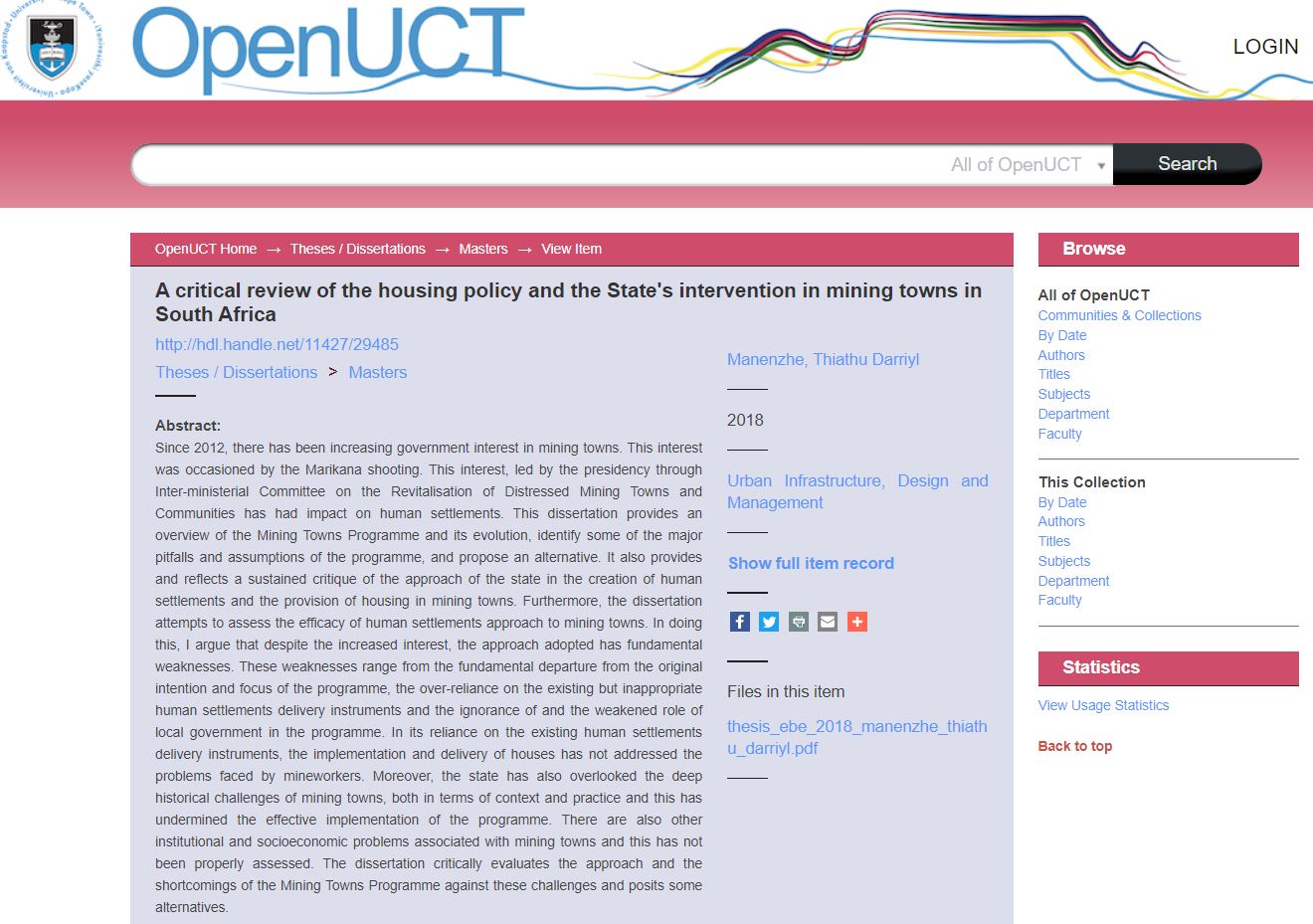A critical review of the housing policy and the State's intervention in mining towns in South Africa

18 October 2018
University of Cape Town
English
Dissertation
Municipal Capability & Partnership Programme
Africa
Since 2012, there has been increasing government interest in mining towns. The Presidency established an Inter-ministerial Committee on the Revitalisation of Distressed Mining Towns and Communities which has subsequently had a significant impact on human settlements.
This dissertation provides an overview of the Mining Towns Programme and its evolution, identifies some of the major pitfalls and assumptions of the programme, and proposes an alternative. It also provides a critique of the approach of the state in the creation of human settlements and the provision of housing in mining towns. Furthermore, the dissertation attempts to assess the efficacy of human settlements approach to mining towns. In doing this, the author argues that despite the increased interest, the approach adopted has fundamental weaknesses. These weaknesses include the fundamental departure from the original intention and focus of the programme, the over-reliance on the existing, but inappropriate, human settlements delivery instruments, and the weakened role of local government in the programme.
In the opinion of the author, in its reliance on the existing human settlements delivery instruments, the implementation and delivery of houses has not sufficiently addressed the problems faced by mineworkers. Moreover, the state has also overlooked the deep historical challenges of mining towns, both in terms of context and practice and this has undermined the effective implementation of the programme. The dissertation critically evaluates the approach and the shortcomings of the Mining Towns Programme against these challenges and posits some alternatives.
This resource is part of the Mining Towns Collection kindly sponsored by the Municipal Capability and Partnership Programme. Abstract based on source.


Comments